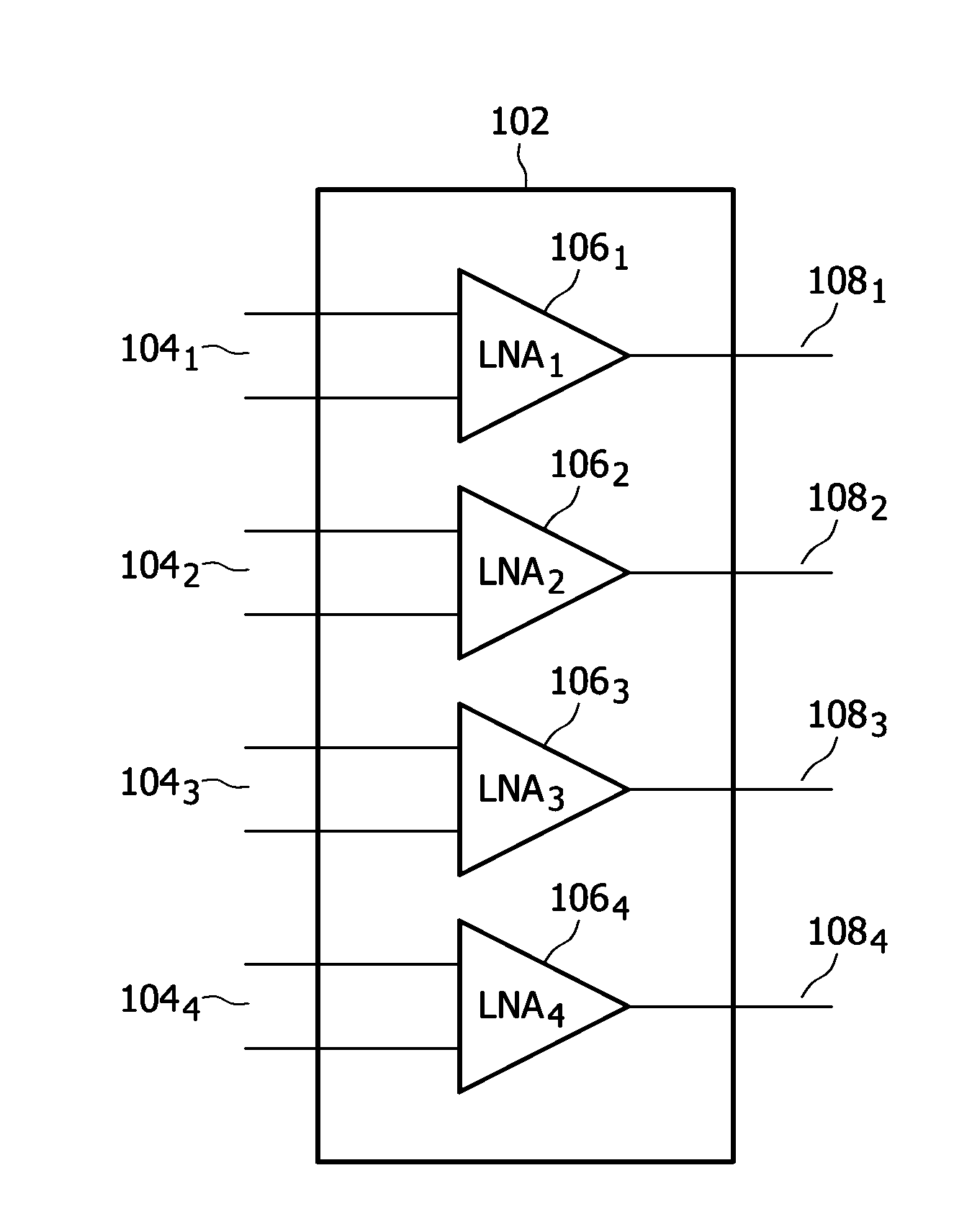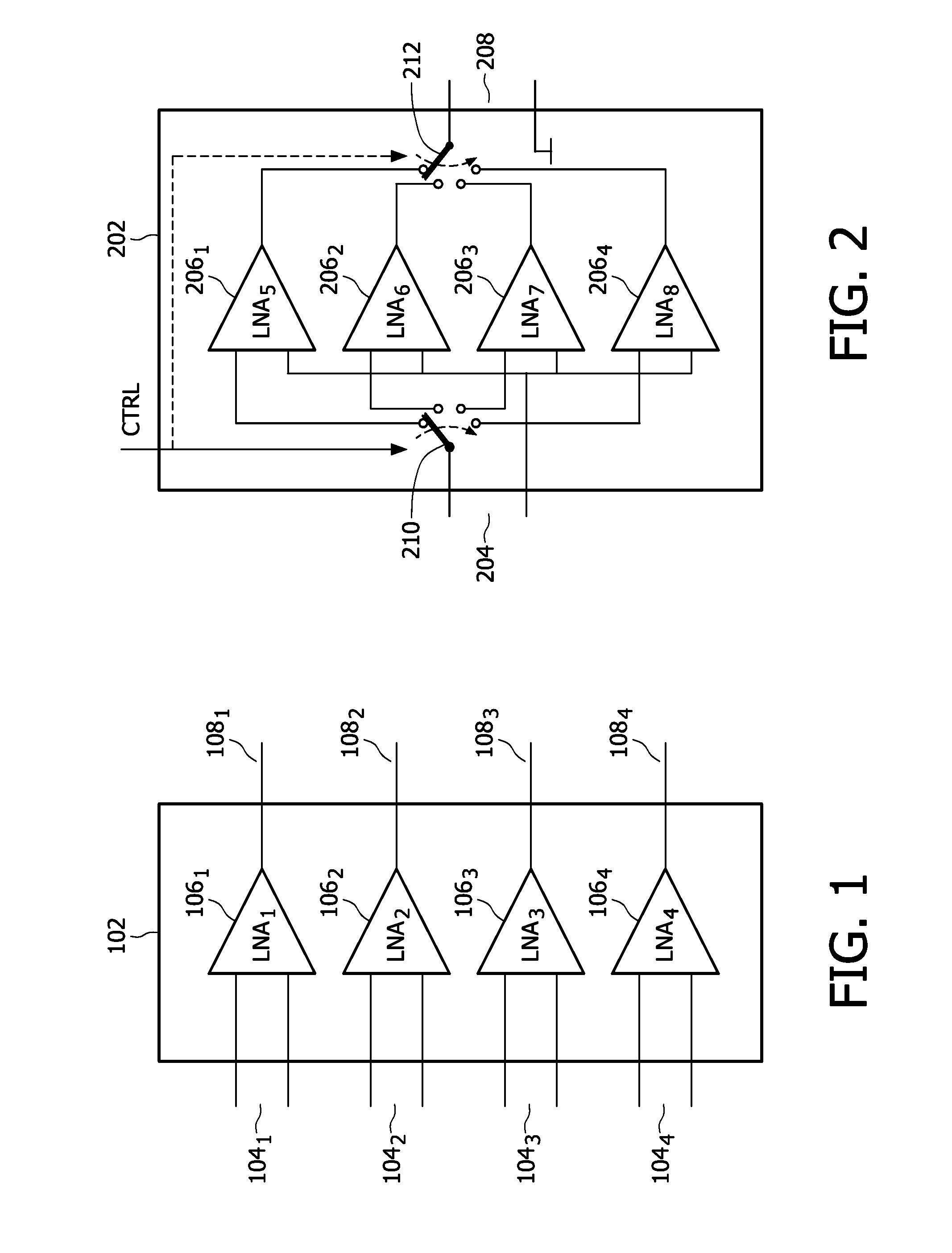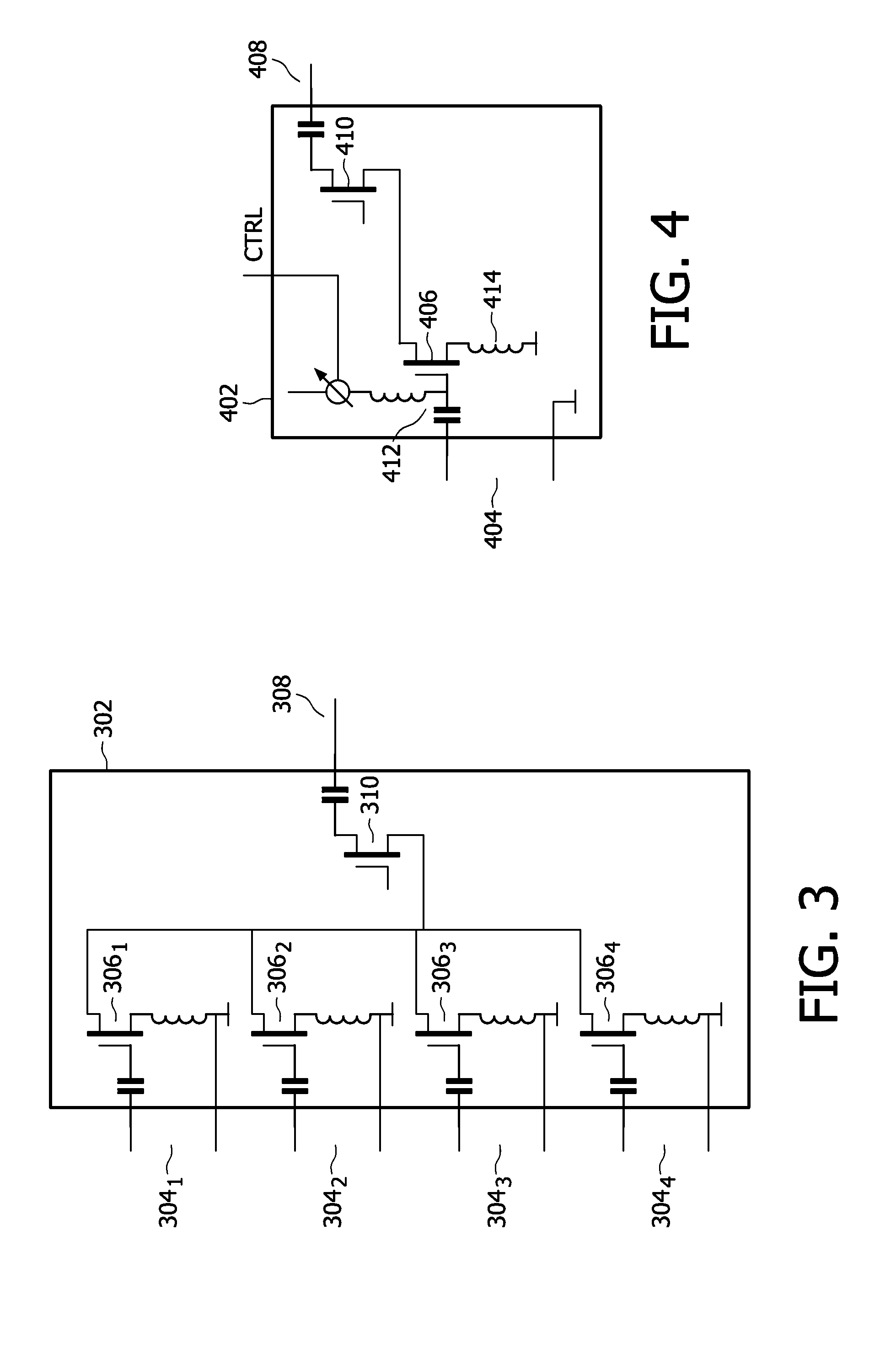Integrated-circuit low-noise amplifier
a low-noise amplifier and integrated circuit technology, applied in the field of low-noise amplifiers (lna), can solve the problems of adding unwanted noise to the signal received by the coil itself, etc., and achieves the effect of increasing the number of parasitic loops and adding unwanted noise to the signal received
- Summary
- Abstract
- Description
- Claims
- Application Information
AI Technical Summary
Benefits of technology
Problems solved by technology
Method used
Image
Examples
Embodiment Construction
[0014]Phased-array coils, sometimes also referred to as “Synergy” coils, employ multiple receive loops simultaneously to receive MR signals from a subject under examination. Due to the proximity of the coil loops to one another, noise currents in one loop could couple to other loops. If each of the loops were connected to a high impedance, the flow of potentially problematic noise currents could be blocked.
[0015]Since the MR signals received by the loops are very weak, the signals need to be amplified in order to obtain reasonable image quality. LNAs are often used for amplifying the MR signals. However, currently known LNA topologies generate low noise only within a specific, small range of input impedances (optimal impedance Zopt); in other words, outside of this range of input impedances, the noise levels generated by the LNA are high.
[0016]In general, there will be a mismatch between the requirements on the impedance seen by the loop and the optimal impedance at the input of the...
PUM
 Login to View More
Login to View More Abstract
Description
Claims
Application Information
 Login to View More
Login to View More - R&D
- Intellectual Property
- Life Sciences
- Materials
- Tech Scout
- Unparalleled Data Quality
- Higher Quality Content
- 60% Fewer Hallucinations
Browse by: Latest US Patents, China's latest patents, Technical Efficacy Thesaurus, Application Domain, Technology Topic, Popular Technical Reports.
© 2025 PatSnap. All rights reserved.Legal|Privacy policy|Modern Slavery Act Transparency Statement|Sitemap|About US| Contact US: help@patsnap.com



